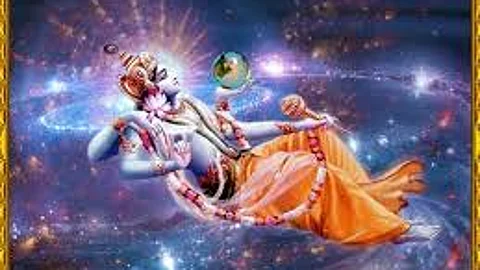

We live in a world that's drowning in statistics. They pour in from every corner and inundate our brain, which copes by ignoring most of what's thrown at it. So, let me share a statistic with you and break it down with an example to understand its true meaning
Now, imagine that you send your child to an Ivy League college. It has a beautiful campus and fantastic faculty. However, it only accepts 1000 students, and your child was fortunate enough to get admission. You visit him after a couple of months and see that he is drastically thinner than before. You realize that the college canteen has a strange rule. Ten students get to share 63% of the food served on campus, while the remaining 990 can barely eat enough to survive. The fortunate 10 students sometimes donate food to random people they meet or organize events that allow others to compete for food. This keeps the others busy, and they fight among themselves to become the 11th person who can join this privileged group with unlimited food and donate food to others.
How long will it take before the 990 students finally realize that the whole system is rigged against them and that the only way to survive is to demolish this system and create a new one? Even in a hypothetical scenario where they topple this system, how do you guarantee that the new system is better and does not create inequalities in the future?
We live in a world today where everyone takes extreme positions on various philosophies. The capitalists will defend their way of life as the only practical way to structure society. The socialists will talk about the advancements in China. At the same time, Europe will argue about how balancing both approaches helps it thrive. '
When I think deeply about the problem of social inequality, I conclude that the challenge lies with the human brain. Our ancestors spent so many thousands of years foraging for natural resources and storing them that the brain does not understand how to survive in an age of abundance. We still imagine ten billion dollars is better than a billion dollars, and an uber-luxury yacht may make you happier than a regular boat.
How do we then make this world a more equitable place? One answer is to tax the rich heavily and redistribute the wealth. This leads to significant challenges, given that the rich control most governments and the media organizations that can amplify such opinions enough to gain public mandate.
Mo Gawdat, the chief business officer at Google X, proposed another unique answer. He stated that current AI models like GPT-4.5 exhibit ~155 IQ, rivaling Einstein. Gawdat projects 1,500+ IQs by 2037 through compute scaling and agentic systems.
This will allow humanity to address "wicked problems" (climate change, disease) by redefining resource constraints. For example, molecular nanotechnology might convert abundant raw materials into food, energy, or medicine, rendering scarcity obsolete.
The challenges to creating an equal world would not come from technology. It would come from the human belief that something is unique because you have exclusive access to it. This belief allows ultra-luxury brands to sell you everyday goods at eyewatering prices and countries to set up tax-free zones where billionaires can park their money.
How do you tell people to reimagine a world where not only humans but every single creature inhabiting it enjoys its existence and does not get exploited for commercial gain?
The answer may lie in a beautiful verse from the Maha Upanishad - an ancient Indian scripture.
The phrase Vasudhaiva Kutumbakam is derived from three Sanskrit words: Vasudha (Earth), Eva (indeed/is), and Kutumbakam (family). Together, they convey that the entire earth is one extended family.
The idea that every creature on this earth is a part of one extended family is rooted deeply in the Indian subconscious. The thought is seeded through one of the oldest scriptures known to humankind, the Rig Veda. The Purusha Sukhtam, a set of verses in the Rig Veda, presents a profound cosmological vision centered on Purusha, the Cosmic Being who represents the universal principle pervading all existence while simultaneously transcending it. The hymn proclaims that everything is the manifestation of the Purusha alone— whatever was and whatever will be.
At the core of the Purusha Suktam lies the concept of creation through cosmic sacrifice. The hymn explains that the universe was formed through the sacrifice of Purusha himself, with different parts of his cosmic body transforming into various aspects of the cosmos. This creative sacrifice represents a profound message of love - "that the Purusha would consume himself in the fire of creation, to create all the worlds.
The word Purusha represents the formless masculine divinity and is also worshiped as Lord Vishnu. The best example is the Srimad Bhagwat Gita, where Sri Krishna, an avatar of Lord Vishnu, talks about his role in creation.
O Arjun, I am seated in the heart of all living entities. I am the beginning, middle, and end of all beings.
Oh Arjun! Whatever embodied beings are born in all the wombs, the Primeval Prakriti is their mother who conceives them, and I, Brahm-Kaal, am the seed-giving father.
I am the Supreme Goal of all living beings, and I am also their Sustainer, Master, Witness, Abode, Shelter, and Friend. I am the Origin, End, and Resting Place of creation; I am the Repository and Eternal Seed.
Think about a world where every human peacefully coexists with nature. We leverage technology to vastly improve the quality of human life while acknowledging that all other species inhabiting this planet are manifestations of the same divinity and deserve the same place in the cosmic scheme as us. We can practice ideas and philosophies without imposing them on others because we have enough time and resources to explore them in great detail.
